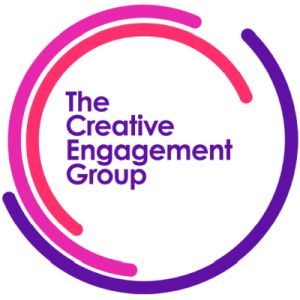
DEI in Practice: A Workplace Culture of Belonging, Authentic Listening and Sharing Vulnerabilities are Vital

Creating an inclusive and diverse business culture was vital before the pandemic, but has become urgent for success in a post-Covid world, according to a new study on diversity, equity and inclusion (DEI) conducted by Forty1, the employee experience division of The Creative Engagement Group (TCEG).
The latest report - which was led by Luke-Matthew Iveson and Jill Vitiello as part of the DEI Centre of Excellence at Forty1 - examines ways to reshape the workplace to make it genuinely diverse, equitable and inclusive; focusing on the impact on business performance, the employee experience, reputation and external relationships. Forty1 hosted a virtual focus group, within a safe, open environment, for discussion using the ThinkTank platform with a group of 70 business leaders from around the world, in different DEI-specific, HR, Strategy, Comms and Leadership roles, who contributed their personal insights.
Luke-Matthew Iveson, DEI Lead & Engagement Consultant at Forty1 commented: “Like so many businesses, we wanted to know what authentic DEI activity looks like. One of the biggest risks to the impact of DEI programmes right now is that employees see such initiatives as being just a ‘nice to have’ or, even worse, as virtue signalling.
“Our research highlighted that in order to change mindsets and behaviours, businesses need to be purposeful and authentic in their actions. Respondents strongly agreed (scoring 5.44 out of 6) with the statement that the biggest challenge in driving authentic change is leadership – saying that leaders need to truly listen and take accountability. In addition, the results show that organisations have the ability to impact big societal issues, but far too often it’s framed around benefitting the organisation rather than society itself.” Luke-Matthew added.
The report shows employees want to work for purpose-driven companies whose CEOs take a stand on matters of injustice. It’s not enough now to have DEI as company policy: purpose and activism are playing a bigger part in more and more people's lives, and they are bringing this focus back to the workplace. The respondents said that diversity and inclusion are rapidly becoming a competitive imperative for businesses and are essential in the battle to hire and retain talent.
“Today’s employees want to see DEI in action,” said Jill Vitiello, partner and executive vice president, Forty1 US. “Embedding DEI practices into business culture requires an active and conscious leadership that is committed to providing equitable outcomes for the workforce. That is the first step to building a truly diverse culture where everyone feels they belong and can progress their careers irrespective of their background.”
The research shows that the most cited advantage of successful DEI implementation is the creation of a workplace culture of belonging, helping individuals to be both their true and best selves. Employees want authentic listening: participants voted employee listening as the most crucial priority with an agreement score of 5.75 out of 6 - they want to know that their peers, line manager and leaders care about what they are saying and that they have the space to voice their thoughts. They also want two-way conversations, and ones that speak up, just as much as they do down. Respondents also noted that DEI activities built from employee voices and feedback are the most authentic and go a long way toward creating a sense of belonging.
With trust in government leaders at an all-time low, employees are looking to their workplaces for guidance and as a source of accurate information. Business therefore can shape a culture that can set standards far beyond the workplace. This approach to diversity can have far-reaching positive effects on reputation, reflecting a better, fairer world in the workplace. It makes organisations better able to serve customers, clients and communities and deepen those important external relationships.
Respondents also highlighted how a culture of openness is vital when approaching diversity. Even those keen to change may be confused about how to do it, or fearful of saying or doing something inadvertently offensive. For diversity to be at the heart of any business, there is a need to acknowledge a company-wide learning journey – individually, inter-personally and institutionally.
Acknowledging one’s own vulnerability can be a start, and even more so when it comes from leadership. This can make tough conversations easier to have and more meaningful. By sharing lived experiences, leaders can show a commitment to talking about difficult topics and acknowledge that there is room for mistakes, demonstrating their learning journey.
“Today’s businesses know that employees are demanding ever greater diversity, equity and inclusion from their employers,” concluded Luke-Matthew Iveson “Our Think Tank offers powerful insights into how best to move forward on the journey towards creating truly diverse organisations.”









